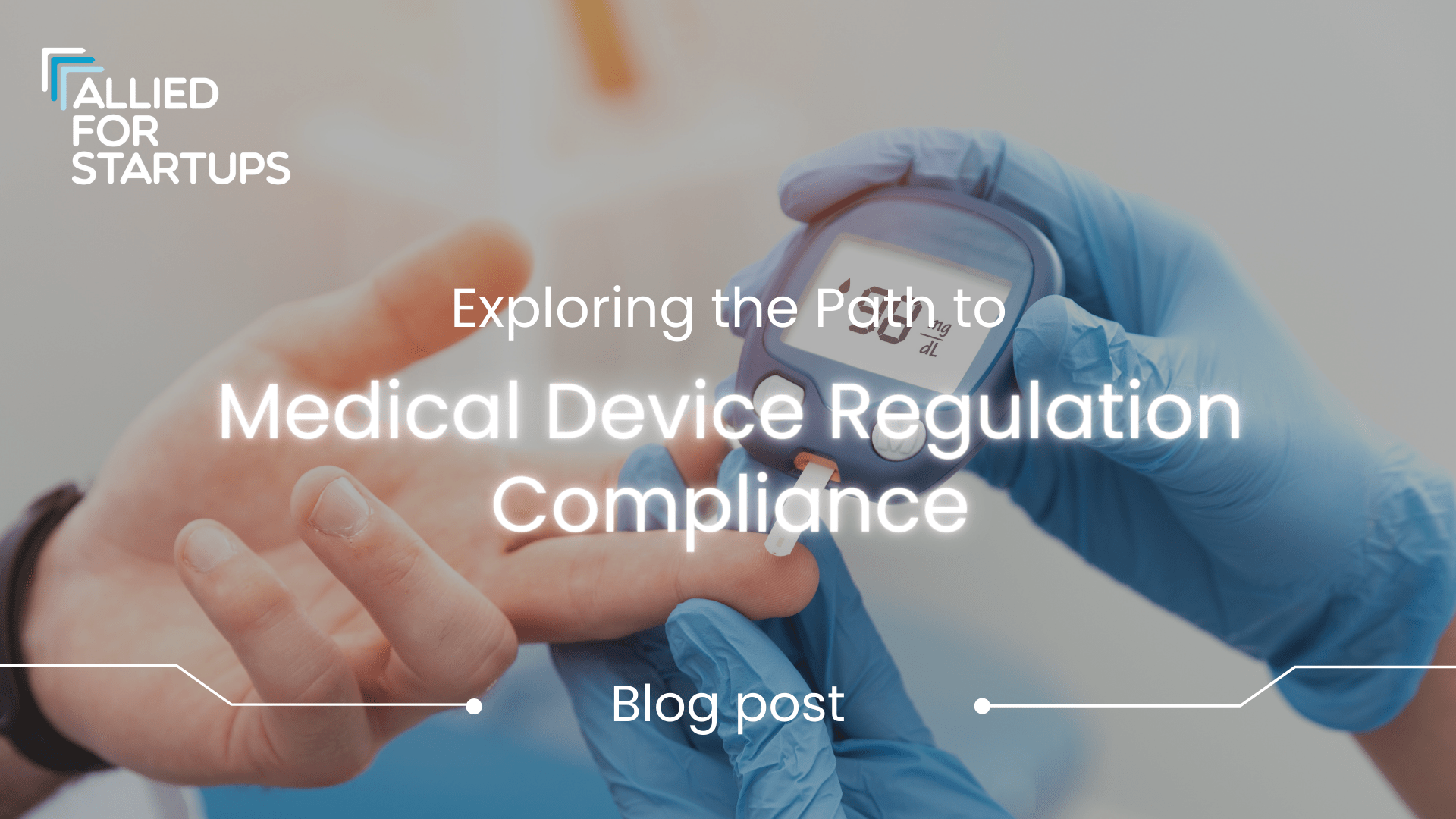Exploring the Path to Medical Device Regulation Compliance
A medical device, such as a thermometer or pacemaker, is a tool designed for healthcare purposes, including diagnosis, treatment, monitoring, and prevention of medical conditions. As technology continues to advance at an unprecedented pace, medical devices have become synonymous with cutting-edge healthcare solutions, offering the potential of significantly improved patient outcomes.
The Medical Device Regulation
To ensure a robust regulatory framework across the European Union (EU), the Medical Device Regulation (MDR) came into effect in 2021. The introduction of the MDR established the necessary criteria to receive the CE marking for entry into the market, processed by independent organisations known as notified bodies.
However, medical device innovation has proven to come hand-in-hand with stringent regulatory oversight and complex challenges, particularly for startups. With strict criteria for medical devices to operate in the EU market, the MDR necessitates devices previously certified under medical device directives to be reassessed within the transitional periods provided for in the MDR. However, due to significant delays and a lack of capacity in notified bodies, concerns about certification bottlenecks and ultimately potential shortages of certain medical devices on the EU market increased.
As a result, the European Commission proposed to amend the transitional provision of the MDR, mitigating the immediate risk that medical devices already on the EU market certified by previous Directives, would no longer be available after May 2024. On 20 March 2023, Regulation (EU) 2023/607 was formalised, providing medical devices more time for recertification by pushing deadlines for high-risk devices to comply by the end of 2027 and medium and lower-risk devices to the end of 2028.
A Way Forward
Startups in Europe have been at the forefront of medical device innovation, propelling the healthcare industry forward. However, their journey to market is often unpredictable, complex, and costly – resulting in a delay for medical devices, both those already on the market and future innovations, to reach European patients and health systems. Despite the amendment to MDR transitional regimes, Europe is at risk of entering a severe medical device shortage.
To mitigate this risk, startups have voiced the need to:
1. Create a transparent validation system with increased support
Encouraging a transparent, standardised, and expedited procedure not only reduces uncertainty but also shortens time-to-market for medical devices. By offering entrepreneurs a clear roadmap, they can better allocate their time and resources on what they do best: innovating. A more open validation system empowers startups to bring their transformative solutions to patients more swiftly, ultimately benefiting healthcare outcomes.
2. Improve predictability in MDR conformity assessments
Predictability enables startups to plan, prepare, and allocate resources more effectively. With clear conformity assessments and requirements, particularly with timelines, startups can streamline their operations, reduce administrative burdens, and ensure their innovations comply with regulatory standards from the outset. This predictability ultimately contributes to a more stable and thriving medical device ecosystem.
3. Fast-track assessment pathways
To support critical innovations, such as those addressing unmet medical needs or serving niche and orphan indications, dedicated and fast-track assessment pathways should be made available. By offering startups working on these high-impact solutions a streamlined regulatory process, it will be possible to accelerate the journey of these life-saving innovations onto the market.
In conclusion, by embracing a more open validation system, improving predictability in conformity assessments, and offering fast-track pathways for critical innovations, we can create a medical device ecosystem where patients benefit, health outcomes improve, and startup technologies can make their impact.
Want to hear more or get in touch? Don’t hesitate to reach out to [email protected].

